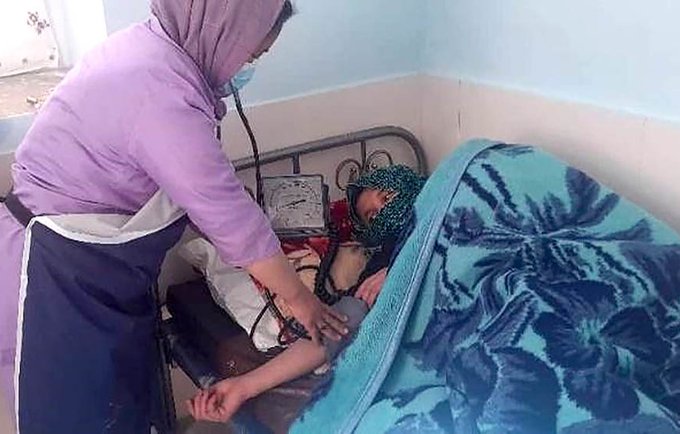Bamyan, Afghanistan – “I wish we had such a facility and a midwife during my first two deliveries. Maybe I wouldn’t have lost my babies.”
New mother Sediqa contemplated the professional care she received from the Family Health House (FHH) where she recently delivered, aided by a skilled midwife, and compared it to when she delivered at home for her first two pregnancies and lost both babies due to complications.
Although her last delivery was for her fifth pregnancy and Sediqa kept in mind all the advice given by the midwife at the FHH, the traumatic experience from the newborn deaths she experienced before still made her anxious.
Sediqa’s preparation included regular visits to the midwife for prenatal care. “I knew I would be in good hands with the midwife at the FHH but my worries lingered because of the traumatic loss of my first and second children,” the 36-year-old mother explained.
As soon as Sediqa arrived at the FHH for her delivery, midwife Zakia immediately attended to her. “I assessed the mother and fetus and conducted a physical examination, everything was normal. The labor progressed normally and the delivery went smoothly,” the midwife said. The FHH is one of the health facilities providing reproductive health services supported by the Government of Italy in Afghanistan through UNFPA.
When Sediqa’s condition stabilized, the midwife provided essential guidance on appropriate maternal nutrition, breastfeeding, vaccination, and identifying warning signs in infants for possible health problems. The midwife emphasized the significance of maternal hygiene, recognizing post-delivery warning signs, and obtaining postnatal care.
In remote and hard-to-reach areas of Afghanistan, the presence of a skilled midwife can be a life-saving resource for mothers and babies, especially during winter when transportation and freezing weather pose significant challenges for accessing healthcare facilities.

